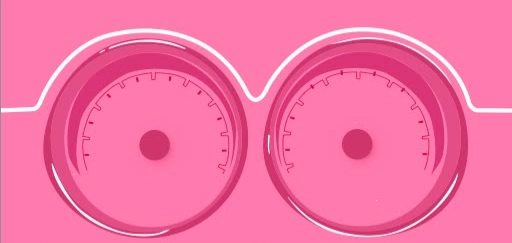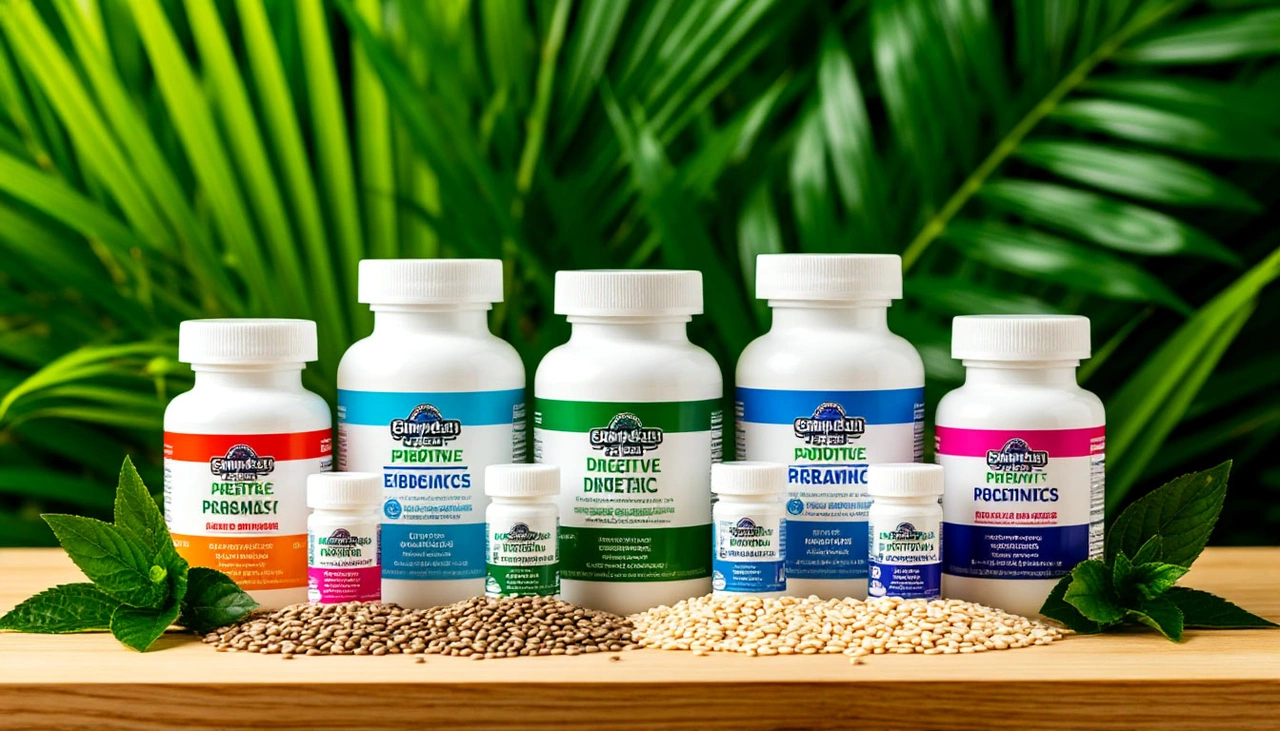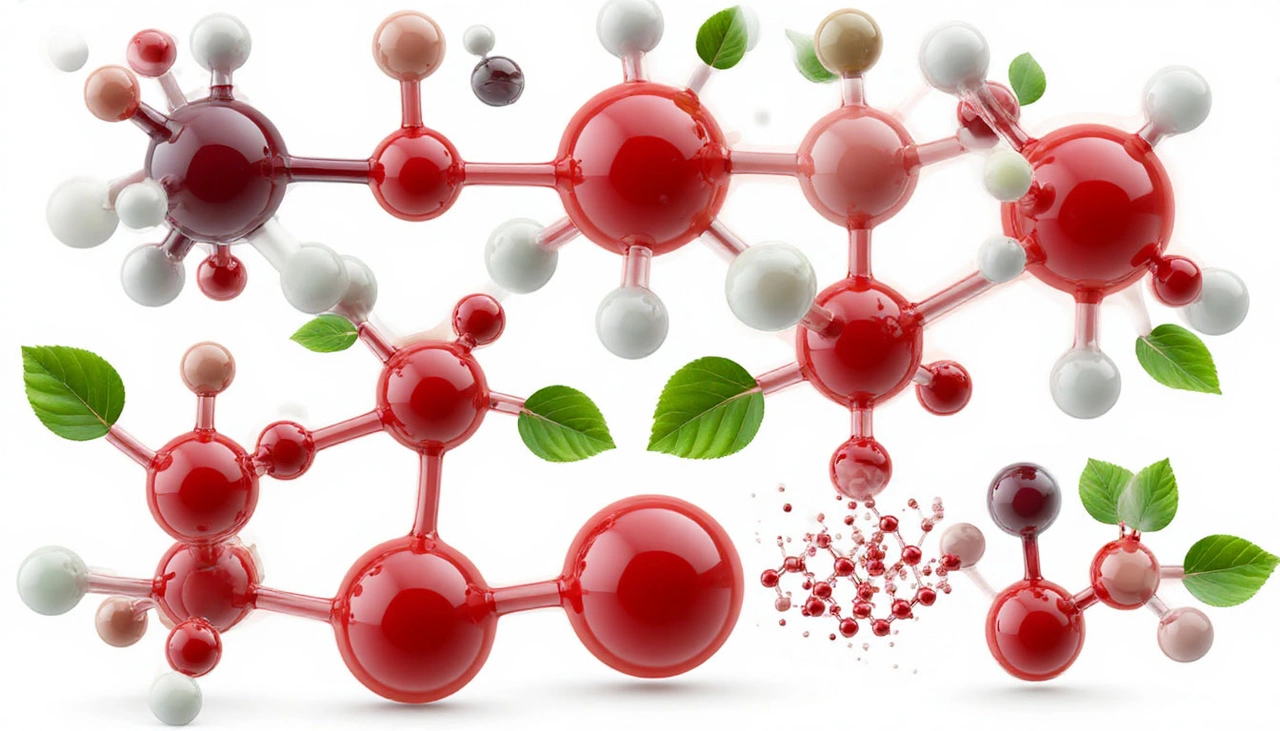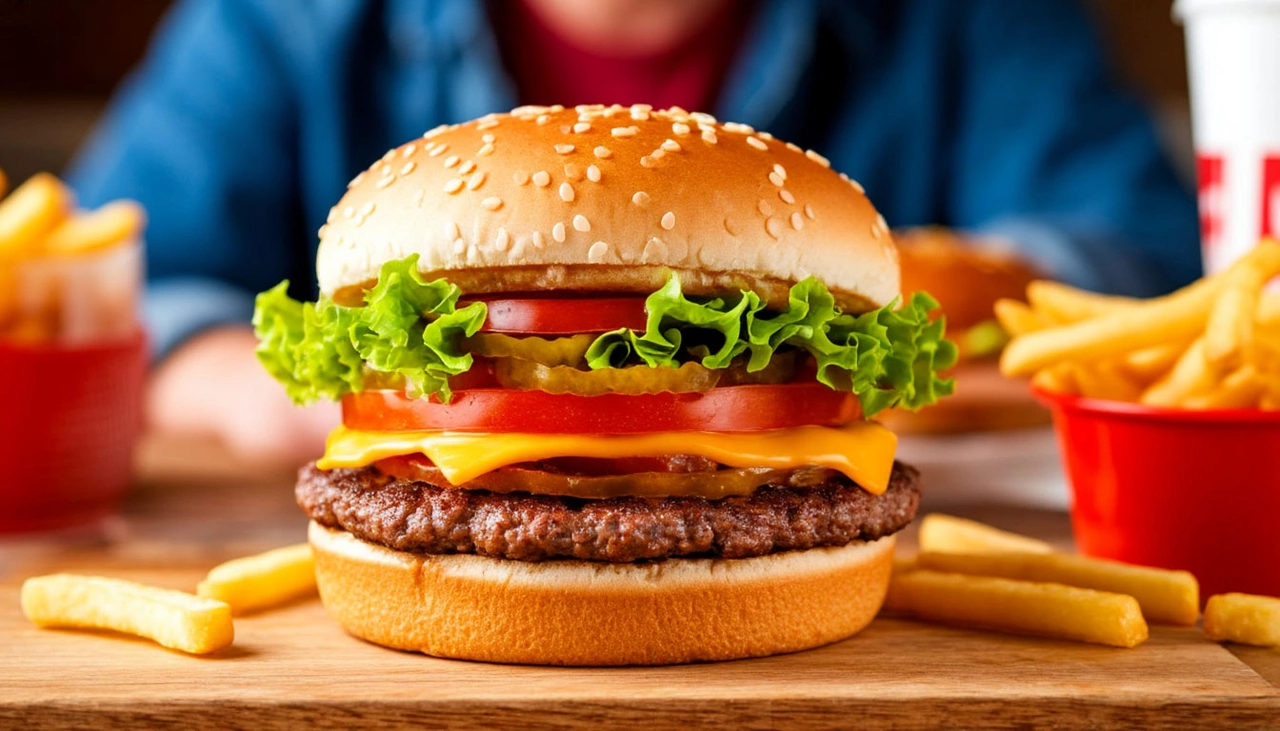Women's Health Posts on Crowch
Every October, millions of people around the world unite to talk about an important topic — the fight against breast cancer. This month is not just a symbol of the pink ribbon, but a reminder of the value of life, self-care, and supporting one another.
Breast cancer remains the most common type of cancer among women. Statistics show that one in eight women may face this diagnosis during her lifetime. But it is important to remember: early detection saves lives. Regular medical checkups, self-examination, and being attentive to your own body help identify changes at the earliest stages, when the chances of successful treatment are highest.
Breast Cancer Awareness Month carries several key goals:✨ To inform — reminding women and men (yes, men can also develop breast cancer) that prevention and knowledge can save lives.✨ To support — providing emotional, psychological, and material assistance to those undergoing treatment or who have already overcome the disease.✨ To unite — families, communities, organizations, and even entire nations in the fight against fear and in breaking down myths surrounding the illness.

💗 This month is about strength. The strength of women who go through treatment every day and refuse to give up. The strength of doctors and nurses who dedicate themselves to helping their patients. The strength of family and friends who inspire hope and courage.
We wear the pink ribbon, participate in charity runs, and spread information on social media not for the symbol itself, but for life. Every word of encouragement, every small act of awareness can save someone’s mother, sister, friend, or colleague.
It is important to remember: taking care of yourself is not selfishness, it is responsibility. Schedule a medical exam, remind your loved ones to do the same, share helpful information. A small action today can become a great salvation tomorrow.

Breast Cancer Awareness Month is a time to talk about health openly, without embarrassment or fear. It is a time to come together for a future where the words “breast cancer” will no longer sound like a sentence.
Let the pink ribbon be a symbol of hope, support, and strength. Let it remind us that each of us can contribute to the fight for life.
October is a special month for millions of people across the globe. The pink ribbon has become a universal emblem of unity — bringing together those who are currently fighting breast cancer, those who have survived it, and those who offer their unwavering support. Breast Cancer Awareness Month is not just a symbolic event on the calendar. It is a movement, a reminder, and a call to action: our health is in our own hands.
The Reality and the Hope
Breast cancer does not discriminate. It can affect women and men, young and old, regardless of profession, background, or lifestyle. But there is hope — when detected early, breast cancer is one of the most treatable forms of cancer. Survival rates increase dramatically when the disease is found at an early stage, before it spreads. This makes awareness and regular screening not just important, but life-saving.
Too often, people delay checkups because they feel healthy, are too busy, or fear the results. But early detection offers options, treatment plans, and a much higher chance of recovery. It turns fear into action and uncertainty into hope.
Taking Care of Yourself

Caring for your breast health starts with simple steps:
- Self-examination: Once a month, take a few minutes to check for any unusual lumps, changes in skin texture, or other irregularities.
- Regular medical checkups: Schedule a clinical breast exam with your healthcare provider.
- Mammograms: For women over 40, annual or biennial screenings are generally recommended. If you have a family history or other risk factors, speak to your doctor about starting earlier.
These actions are small in effort but monumental in impact.
Supporting the Cause

Pink October is not only about personal health — it’s about collective action. Across the world, communities organize charity runs, awareness events, fundraising galas, and educational workshops. Landmarks light up in pink to keep the conversation alive. Social media becomes a platform for survivor stories, expert advice, and calls to participate.
You don’t need to be a doctor or a researcher to contribute. Sharing accurate information, encouraging loved ones to get screened, or donating to organizations that support patients and fund research are all powerful ways to make a difference. Sometimes, a simple conversation can prompt someone to take the first step toward early detection.
A Call to Action
This October, let the pink ribbon be more than a symbol — let it be your personal reminder to act. If you have been postponing your checkup, schedule it now. If you know someone at risk, reach out to them. If you have a platform, use it to spread awareness.
Breast cancer is a challenge, but it is one we can face with knowledge, solidarity, and determination. Together, we can save lives, offer hope, and work toward a future where fewer people have to endure this disease.
Today is the best day to take a step toward better health — for yourself and for those you love.
Breast cancer is not a death sentence if detected early. Every October, the world unites under the pink ribbon — a symbol of hope, awareness, and determination — to remind people about the importance of monitoring breast health and supporting those affected by the disease.
While breast cancer is far more common among women, men can also develop it, and their cases are often diagnosed at a later stage because awareness is lower. That is why education, vigilance, and access to screening are vital for everyone, regardless of gender.
The Importance of Early Detection
Breast cancer often begins silently, without pain or visible symptoms. By the time it is noticeable, it may already be in an advanced stage. However, modern medical tools make early detection possible. Monthly self-examinations help individuals become familiar with their own bodies and notice changes such as lumps, skin dimpling, or unusual discharge. Medical checkups — including mammography and ultrasound — can reveal issues long before they become serious.
Health experts recommend:
- Self-examination every month, ideally a few days after your menstrual cycle ends.
- Annual clinical exams by a healthcare provider.
- Regular mammograms for women over 40, or earlier if there is a family history or genetic risk factors.
Global Action and Solidarity

Breast Cancer Awareness Month is marked by a wave of initiatives worldwide. Cities light up in pink, charity runs draw thousands of participants, and public events provide free medical screenings and educational sessions. Social media campaigns share survivor stories, tips on early detection, and fundraising opportunities.
The purpose of these events is twofold — to raise money for research and patient support, and to create a community of solidarity. Listening to survivors share their journeys — from the fear of diagnosis to the relief of remission — inspires others to take preventive action and offers hope to those currently in treatment.
How You Can Help

Even small actions can make a big difference:
- Educate yourself and others about breast cancer symptoms and prevention.
- Support charities that fund research or assist patients financially and emotionally.
- Encourage loved ones to get screened, especially if they are at higher risk.
- Share accurate information on social media to combat myths and misinformation.
A Call to Action
This October, take a step for your health — whether that means booking your mammogram, learning self-examination techniques, or starting a conversation with friends and family. Your voice and your actions matter.
Breast cancer is a challenge, but it is a challenge we can meet with awareness, science, and solidarity. Together, we can save lives, offer hope, and work toward a future where fewer families are affected by this disease.
Losing weight is a goal many people strive for, and advice on how to achieve it is everywhere. But are these tips truly universal? What hidden challenges might you face on the path to your ideal body shape? In this article, tailored for residents of Saudi Arabia and the Emirates, we will explore some of the lesser-known obstacles in weight loss and offer practical solutions, including dietary supplements, to help you overcome them effectively and safely.
The Link Between Excess Weight and Constipation
Individuals carrying extra weight tend to experience constipation more often than those with normal weight. This connection is largely due to dietary habits: fast food and simple carbohydrates dominate many people’s meals. Such foods are quickly digested, which not only leads to further weight gain but also disrupts the normal functioning of the gastrointestinal (GI) tract.
Constipation and weight gain are closely related — studies show that overweight and obese individuals suffer from stool retention multiple times more frequently. Attempting to lose weight through dieting often doesn’t resolve this issue. When a diet lacks sufficient fiber and vitamins, stool formation is impaired. Small, poorly formed stools move slowly through the intestines, worsening constipation.
“I Started a Diet and Now I Have Constipation”
More than half of people who go on a diet experience constipation either during or after the process. This happens because the body reacts to changes in the usual eating pattern. Experts identify three main mistakes people make when trying to lose weight that contribute to constipation:
- Insufficient Water Intake: Water plays a vital role in the body’s biochemical processes, including stool consistency. Drinking less than two liters daily can impair digestive function. It’s recommended to drink water about 30 minutes before meals and avoid consuming it immediately after eating—wait at least 40 minutes.
- Too Little Food or Irregular Eating: Skipping meals or eating infrequently can cause what’s called alimentary constipation. You can reduce portion sizes but should not starve yourself. Aim to eat up to six times a day, ensuring no more than a five-hour gap between meals. Healthy snacks are a great way to prevent long fasting periods.
- Overly Restrictive Diet: The body needs a daily supply of nutrients and fiber. Monodiets, where you eat only one type of food (like just chicken breast or one grain), are harmful. A balanced diet should include lean meats, fish, poultry, fresh vegetables and fruits, dairy products, various grains, and healthy fats like olive oil.
Sudden drastic changes to your diet can stress the body. Many people trying to lose weight change their eating habits overnight, which overwhelms the digestive system. Diets like the Dukan diet force you to eat monotonous meals, which can reduce the gut’s activity and worsen constipation.

🥗 Effective Rules for Weight Loss Success in Saudi Arabia & Emirates
What are the proven principles you should follow to lose weight healthily and avoid common pitfalls?
- Adopt a Balanced Diet Gradually. Rapid weight loss through harsh dieting usually fails in the long term. Crash diets can cause yo-yo effects and increase cravings. Make sustainable changes step by step. Over time, your metabolism will adapt, and fat will burn naturally. Patience and consistency are key.
- Maintain a Consistent Eating Schedule. Eating meals at regular intervals positively influences metabolism and hunger control.
- Increase Your Water Consumption. Replace sugary soft drinks with water as much as possible. Limit tea and coffee with sugar. When hunger strikes, try drinking water first—it often reduces cravings.
- Get Adequate Sleep (7+ Hours). Lack of sleep forces your body to seek energy from food, often leading to overeating. A restful night helps regulate hunger hormones and provides energy.
- Stay Physically Active. If you can’t go to the gym, exercise at home. Allocate time for morning stretches or quick workouts. Enjoy outdoor walks and find a physical activity you love—dancing, skating, climbing, or swimming. The important part is to keep moving joyfully.
🌿 Supplements to Support Digestion and Weight Loss in Saudi Arabia & Emirates
Supporting your diet with supplements can help regulate bowel function and improve weight loss results. Especially in environments where fast food and busy lifestyles are common, supplements become essential.
Look for these helpful supplements:
- Fiber Supplements (Psyllium, Inulin): To increase stool bulk and improve transit time.
- Probiotics: To balance gut bacteria and improve digestion.
- Magnesium: Helps relax intestinal muscles and soften stools.
- Digestive Enzymes: Aid in the breakdown and absorption of nutrients.
- Multivitamins: Ensure you get essential nutrients that might be missing in restrictive diets.
Using these supplements alongside a balanced diet and lifestyle can significantly improve digestion, reduce constipation, and support sustainable weight loss.
In conclusion, weight loss journeys in Saudi Arabia and Emirates come with unique challenges, but with informed choices, gradual changes, and proper support through diet and supplements, you can achieve your goals without compromising your health. Remember, patience and consistency are your best allies on the path to lasting well-being and a healthier lifestyle.
In today’s fast-moving world, the pace of life has accelerated so much that many people struggle to cope with mounting mental pressures and often live under constant stress. According to global statistics, about 77% of people regularly experience physical and psychological symptoms linked to stress, and over half (54%) admit that ongoing excessive tension is a primary cause of conflicts with family and close ones. This article explores how acute stress impacts the human body, why it can be dangerous, and practical ways to calm down and restore your mental well-being—especially relevant for those living in Saudi Arabia and Emirates, where fast lifestyles and unique cultural factors influence stress levels.
What Is Acute Stress?
Acute stress is a short-term reaction triggered by a strong stressor that can manifest both psychologically and physically. Common symptoms include uncontrollable anxiety, numbness, despair, fear, irritability, aggression, rapid heartbeat, and dizziness.
Clinically, acute stress includes an immediate stress reaction lasting up to two days and an acute stress disorder lasting up to four weeks. This process happens in two stages:
- Stage One: Confusion and disorientation dominate, with narrowed perception and focus.
- Stage Two: Symptoms may shift to anxiety, panic, physical complaints (like palpitations), anger, or stupor.
These symptoms usually develop within minutes and often subside over 24 to 48 hours.

Why Is Acute Stress Dangerous?
Without timely intervention, acute stress reactions can escalate into acute stress disorder and eventually chronic stress (distress), severely affecting both mental and physical health. Persistent nervous tension can weaken the body’s defenses and adaptability, leading to chronic diseases.
For example, the increased heart rate and blood pressure common in acute stress raise the risk of cardiovascular issues such as hypertension and ischemic heart disease. Psychosomatic problems including tension headaches, migraines, and sleep disorders are also linked to unmanaged stress.
On a psychological level, distress can lead to anxiety, depression, panic disorders, and damage interpersonal relationships and professional performance.
How to Calm Down? Stress Relief Techniques for Saudi Arabia & Emirates
In psychological practice, various techniques help people manage acute stress. Since stress reactions vary widely, the choice of method depends on individual response patterns. Below are common stress reactions and effective ways to regain calm.

😭 Hysterical Reaction (Emotional Outburst)
This reaction involves intense emotional energy release, where a person may scream, wave their hands, and cry. At this stage, self-help is challenging because the person is overwhelmed emotionally and often confused about what is happening.
Recommendations: Try to isolate yourself if possible, splash cold water on your face, and practice controlled breathing exercises: inhale, hold breath for 1–2 seconds, exhale slowly through the nose, pause for 1–2 seconds, then inhale again slowly. Repeat until you feel calmer.
😡 Aggressive Reaction (Anger, Rage)
Anger is another high-energy response, which can be verbal (threats) or physical (aggressive acts). Unchecked anger spreads quickly and can involve others, escalating conflicts into serious disputes.
Recommendations: Physical activity is key to reducing aggression. Engage in exercises like running, jumping, squats, or hitting a pillow. Once calmer, communicate your feelings constructively.
😨 Fear Reaction
Fear protects us from danger but becomes harmful when it is irrational or so intense that it paralyzes thought and action. Recommendations: Use breathing or physical exercises to manage fear. Identify and articulate what frightens you, preferably aloud or to a trusted person, as sharing fears reduces their power. At signs of increasing anxiety, immediately practice calming breaths and verbalize your concerns.
🌿 The Role of Supplements in Managing Stress in Saudi Arabia & Emirates
For some individuals, managing acute stress can be exceptionally difficult. In these cases, specially formulated dietary supplements designed to support the nervous system and promote emotional stability can be very helpful.
Almost everyone has experienced uncomfortable digestive symptoms such as stomach discomfort, irregular bowel movements, excessive gas, and nausea at some point. These unpleasant signs often indicate a disruption in the balance of your gut microbiota—a condition known as dysbiosis, where the harmony between beneficial and harmful bacteria is disturbed.
For residents of Saudi Arabia and Emirates, where diet, climate, and lifestyle may influence gut health, rapid and effective restoration of the intestinal flora is crucial. Specialized probiotics designed for urgent microbiome recovery can help alleviate symptoms quickly and reestablish a healthy gut environment. Below, we explore what makes these probiotics unique and how to incorporate them into your supplement routine for maximum benefit.
Why Choose a Fast-Acting Probiotic?
Not all probiotics are created equal. When you need swift relief and microbiome restoration, the following criteria distinguish a potent probiotic formulated for fast results:
1. High Concentration of Live Bacteria
The number of live bacteria in each capsule directly impacts how quickly your gut flora can be replenished. For noticeable improvement from the very first day of taking the supplement, a count of at least 55 billion viable bacteria is ideal. This ensures enough microorganisms survive the journey through your digestive system to colonize the intestines effectively.
2. Diverse Strains for Comprehensive Support
Quantity matters, but so does diversity. A probiotic containing multiple strains of beneficial bacteria—particularly bifidobacteria and lactobacilli—offers a broader spectrum of benefits. Different strains complement one another by targeting various aspects of gut health, from enhancing digestion to reinforcing the intestinal barrier and modulating the immune system.
3. Acid-Resistant Bacterial Coating
The harsh acidic environment of the stomach can kill many beneficial bacteria before they reach the intestines. To overcome this, fast-acting probiotics employ special acid-resistant coatings or encapsulation technologies that protect bacteria, ensuring that a maximal number of live organisms arrive intact in the gut where they can exert their positive effects.
4. Inclusion of Prebiotics
Prebiotics serve as nourishment for your own gut bacteria, encouraging their growth and activity. Effective probiotics often contain prebiotic fibers like inulin or fructooligosaccharides, which foster a thriving environment for both the introduced and existing beneficial microbes, supporting longer-lasting gut health improvements.

🌿 The Importance of Gut Health in Saudi Arabia and Emirates
The modern diet and fast-paced lifestyles common in Saudi Arabia and Emirates often include high-fat, low-fiber meals, frequent dining out, and stress—all factors that can negatively impact gut microbiota. Additionally, climate-related dehydration may alter bowel function and the microbial balance.
Restoring gut flora rapidly not only reduces uncomfortable symptoms but also strengthens immunity, improves nutrient absorption, and promotes overall wellness. Probiotics that work swiftly are an essential tool in managing digestive health effectively in these regions.
🩺 Practical Tips for Using Probiotics Alongside Supplements
- Combine with Digestive Enzymes: Supplements containing enzymes like amylase, protease, and lipase can improve food breakdown, enhancing probiotic colonization.
- Include Fiber-Rich Supplements: Fiber supports the prebiotic effect, so consider combining probiotics with soluble fiber supplements for best results.
- Stay Hydrated: Proper hydration is crucial in hot climates like Saudi Arabia and Emirates to maintain digestive function and probiotic efficacy.
- Consistency Is Key: Take probiotics daily, preferably on an empty stomach or as directed, to ensure maximum survival of beneficial bacteria.
- Pair with Multivitamins: Micronutrients like vitamins D, B-complex, and zinc support immune function and gut barrier integrity, complementing probiotic effects.

In summary, the rapid recovery of your gut microflora within 10 days is achievable with the right probiotic supplement—one that provides high bacterial counts, diverse strains, acid resistance, and prebiotic support. Residents of Saudi Arabia and Emirates can enhance their digestive health and overall well-being by integrating these probiotics into a thoughtful supplement routine tailored to local lifestyle factors. A healthy gut means better digestion, stronger immunity, and improved quality of life.
Women’s reproductive health is highly sensitive to various factors such as stress, diet, weight, and nutrient deficiencies. In Saudi Arabia and the Emirates, where environmental and lifestyle challenges can intensify, many women face disruptions in ovarian function, menstrual cycles, ovulation, and fertility. Increasingly, healthcare professionals recommend inositol supplements as a natural support to restore and sustain female reproductive wellness. This article will explain what inositol is and how it positively influences women’s bodies, while offering advice on its usage alongside dietary supplements.
What Is Inositol?
Inositol is a vitamin-like nutrient that naturally occurs in nine different molecular forms (stereoisomers). Among these, the two biologically active forms in the human body are myo-inositol (MI) and D-chiro-inositol (DCI).
Myo-inositol is a metabolite synthesized internally from glucose, primarily in the kidneys, and plays a crucial role in cellular function. It represents over 95% of inositol derivatives in the body. However, conditions like kidney disease, diabetes, or certain medications can reduce the body’s ability to produce myo-inositol, which can negatively impact health.

🧬 Key Roles of Inositol in the Human Body
Inositol and its derivatives fulfill several essential functions:
- Metabolic Regulation: Studies show inositol aids fat metabolism, lowers cholesterol, and helps regulate insulin signaling and carbohydrate metabolism. It improves cellular insulin sensitivity, enhancing the effects of hypoglycemic agents and lowering blood glucose levels, which is vital in managing insulin resistance and conditions like PCOS (Polycystic Ovary Syndrome).
- Nervous System Support: Inositol modulates nerve transmission by regulating ion channels and neurotransmitter activity, controlling intracellular calcium levels, and maintaining cell membrane potential. Disruptions in inositol metabolism may contribute to neurodegenerative diseases, while supplementation can enhance cognitive function and mental well-being.
- Antioxidant and Detoxification Effects: Acting as a cell membrane stabilizer and antioxidant, inositol protects cells from damage by free radicals and toxins. Research indicates it not only neutralizes free radicals but also stimulates production of glutathione, a powerful intracellular antioxidant. Combined with selenium, inositol may aid in detoxifying heavy metals and other harmful substances.
- Hormonal Balance and Reproductive Health: In men, inositol supports testosterone synthesis, sperm production, prostate health, and erectile function. For women, it is essential for maintaining hormonal equilibrium and ovulation. Deficiencies have been linked to menstrual irregularities, ovulatory dysfunction, and infertility.
🌸 How Inositol Supports Women’s Health in Saudi Arabia and Emirates
Women living in the intense climate and unique lifestyle environments of Saudi Arabia and Emirates often experience stress, dietary imbalances, and hormonal fluctuations affecting reproductive health. Here’s how inositol can help:
- Regulating Menstrual Cycles and Ovulation: Inositol improves ovarian function by enhancing insulin sensitivity and hormonal signaling pathways. For women with PCOS, a common cause of infertility in the region, inositol supplementation can restore regular cycles and improve ovulation rates.
- Reducing Stress and Anxiety: Chronic stress negatively affects the hormonal axis and reproductive system. Inositol supports neurotransmitter balance, which helps reduce anxiety and promote emotional stability—both critical for reproductive health.
- Boosting Fertility and Pregnancy Outcomes: By normalizing hormonal levels and improving metabolic health, inositol creates a healthier environment for conception and supports early pregnancy maintenance.
- Complementing Dietary Supplements: Inositol works well alongside vitamins D, B-complex, magnesium, and omega-3 fatty acids, which are popular supplements in Saudi Arabia and Emirates to support female hormonal and reproductive health.

💡 Practical Advice: How to Use Inositol with Supplements for Women in Saudi Arabia and Emirates
- Choose High-Quality Inositol Supplements: Look for products containing both myo-inositol and D-chiro-inositol in a clinically studied ratio (typically 40:1). This ratio mimics the natural balance found in the body and optimizes benefits.
- Combine with Other Key Nutrients: Use inositol together with antioxidants like vitamin C and E, magnesium for hormonal balance, and omega-3s for anti-inflammatory effects. These combinations enhance overall reproductive and general health.
- Follow Dosage Recommendations: Most clinical studies use doses ranging from 2 to 4 grams daily, but consult a healthcare provider to personalize intake, especially if pregnant or planning pregnancy.
- Maintain a Balanced Diet and Healthy Lifestyle: A nutrient-rich diet, stress management, and physical activity will amplify inositol’s effects on reproductive and metabolic health.
Living in Saudi Arabia and Emirates demands special attention to female reproductive health due to environmental stresses and lifestyle factors. Inositol supplementation, alongside a balanced diet and other nutrients, offers natural, scientifically supported support to maintain hormonal balance, improve fertility, and promote overall well-being. Incorporating inositol wisely can empower women to face daily challenges with greater health and confidence.
Protecting your skin from the harsh sun is an essential part of daily skincare, especially in sunny regions like Saudi Arabia and the Emirates. If you’ve ever wondered how to choose an effective sunscreen for your face, now is the perfect time to understand what SPF means and how to pick the best product for your skin’s needs.
1️⃣ Aim for the Highest SPF Factor Possible: Why SPF 50+ Matters
SPF stands for Sun Protection Factor — a measure of how well a sunscreen protects your skin from UVB rays, the main cause of sunburn and visible skin damage. Scientists have developed this system to help consumers select products that can effectively block harmful rays and reduce skin cell damage.
For face sunscreens, experts recommend choosing creams with an SPF of at least 50. This level significantly reduces UVB penetration, helping prevent sunburn and protecting your skin’s cellular DNA from damage. However, while SPF number is important, it’s only one piece of the puzzle.

2️⃣ Protect Against All Types of Harmful UV Radiation: UVA and UVB
The sun emits several types of ultraviolet radiation: UVC, UVB, and UVA.
- UVC rays are the shortest and are completely absorbed by the ozone layer, so they don’t reach your skin.
- UVB rays make up less than 10% of the UV radiation that reaches Earth. They stimulate melanin production, which causes tanning — essentially, your skin’s defense mechanism. UVB is responsible for the painful sunburns and can damage skin cells, increasing the risk of skin cancer.
- UVA rays are the longest and most dangerous. Comprising about 95% of the UV radiation reaching us, these rays penetrate deeper into the skin layers. They can pass through clouds and glass windows, causing invisible damage that accumulates over time. UVA exposure breaks down collagen and elastin fibers, accelerating premature aging: wrinkles, sagging, dryness, and pigmentation problems.
Not all sunscreens protect equally against UVA and UVB rays. Products labeled only with SPF protect primarily against UVB. To ensure full-spectrum protection, look for labels marked “UVA/UVB” or “broad-spectrum” on the packaging. This guarantees defense from both types of ultraviolet radiation.
3️⃣ Choose SPF Face Creams with Additional Skin-Nourishing Ingredients 🌿💧
Applying sunscreen daily, and reapplying every few hours, is crucial for effective protection. Yet, the extra step of sunscreen in your skincare routine might feel cumbersome, especially when you already use moisturizers, serums, or anti-aging products.
To simplify your beauty routine while maximizing skin health, opt for SPF creams that offer multifunctional care:
To simplify your beauty routine while maximizing skin health, opt for SPF creams that offer multifunctional care:
- Hydration: Ingredients like hyaluronic acid, glycerin, or natural oils keep your skin moisturized under the drying sun.
- Nutrition: Vitamins E and C help neutralize free radicals generated by UV exposure, boosting skin repair.
- Anti-Aging: Components that promote collagen production or soothe inflammation reduce signs of premature aging caused by sun damage.
Using such comprehensive SPF creams means fewer products on your shelf, saving time and effort while keeping your skin fully protected and cared for.
How to Incorporate Sunscreen and Supplements for Optimal Skin Health in Saudi Arabia and Emirates?
To maintain radiant, youthful skin in sunny climates:
- Always apply a broad-spectrum SPF 50+ cream every morning, even on cloudy days.
- Reapply sunscreen every 2-3 hours when outdoors, especially if sweating or swimming.
- Complement topical protection with supplements rich in collagen peptides, antioxidants, and vitamins (like vitamin C, E, and omega-3 fatty acids). These support skin repair from the inside out and enhance your skin’s resilience against UV damage.
- Stay hydrated and eat a balanced diet rich in fruits, vegetables, and healthy fats to provide your skin with essential nutrients.
In the intense sun of Saudi Arabia and the Emirates, proper sunscreen choice is not just a beauty tip — it’s a vital health step. Selecting high-SPF, broad-spectrum products enriched with nourishing ingredients, combined with smart supplement use, helps you protect your skin, prevent premature aging, and keep a youthful glow year-round.
As we age, our bodies slowly show signs of wear and tear, and one of the earliest indicators of aging is joint discomfort. Starting as early as 25 years old, the balance between cartilage breakdown and repair begins to tip unfavorably. The primary culprit behind this is a decline in collagen production — a vital protein responsible for maintaining the strength and elasticity of joint cartilage. Without enough collagen, joints lose flexibility, become inflamed, and can cause persistent pain.
Why Joints Age: More Than Just Time ⏳
Age is just one piece of the puzzle. Our modern lifestyle—especially in Saudi Arabia and the Emirates, where many lead sedentary lives—exacerbates joint problems. Long hours spent sitting at desks, commuting, or relaxing on couches reduce the mechanical stimulation joints need. This inactivity limits microcirculation in the joint area, leading to faster cartilage deterioration.

The Role of Collagen in Joint Health 🦴
Collagen acts like a scaffold in cartilage, ensuring it remains resilient under daily stress. Its natural decline disrupts the cartilage structure, leading to stiffness and pain. To support joint health, it’s essential not only to consume collagen-rich foods or supplements but also to stimulate your body’s own collagen production.
Activating Your Body’s Repair Mechanisms with Supplements 💊
Recent research highlights the importance of a unique group of compounds found in avocado and soybean oils — called unsaponifiable fractions. These make up a small percentage (about 1-2%) of the oils, containing powerful bioactive molecules such as phytosterols, tocopherols, and carotenoids. Together, they offer promising benefits for joint repair and comfort.
What Are Unsaponifiables and How Do They Work? 🥑🌱
Unsaponifiables are the fraction of avocado and soybean oils left after removing the soap-like components. These extracts have dual action on joint health:
- Stimulating Collagen and Hyaluronic Acid Production
Unsaponifiables encourage the activation of chondrocytes — the specialized cells responsible for cartilage repair. This boosts collagen and hyaluronic acid synthesis, essential building blocks for the cartilage extracellular matrix. Improved metabolism in connective tissues enhances joint mobility, restores cartilage structure, and relieves stiffness. - Reducing Joint Discomfort
These compounds help reduce the production of inflammatory molecules like cytokines IL-6, IL-8, and prostaglandin E2. By lowering inflammation, they ease joint pain and discomfort, improving quality of life.
Lifestyle Tips to Support Your Joints in Saudi Arabia and Emirates 🏃♂️🌞
Along with supplementation, here are practical strategies to keep your joints in shape:
- Stay Active: Incorporate regular low-impact exercises such as walking, swimming, or cycling to improve joint mobility and blood flow.
- Maintain a Healthy Weight: Excess body weight puts additional stress on joints, accelerating cartilage wear.
- Balanced Diet: Include foods rich in collagen (bone broth, fish, chicken skin), antioxidants (berries, leafy greens), and omega-3 fatty acids (fish oil, flaxseeds).
- Hydrate Well: Adequate water intake supports joint lubrication and toxin removal.
- Use Supplements Wisely: Besides collagen peptides, consider supplements with avocado-soy unsaponifiables to aid cartilage repair and reduce inflammation.

How to Choose the Right Joint Supplement in Saudi Arabia and Emirates? 🛒
When selecting supplements, look for products standardized to contain effective doses of unsaponifiables from avocado and soybean oils. Many modern formulas combine collagen peptides with these extracts for synergistic benefits.
Always consult your healthcare provider before starting any new supplement, especially if you have underlying health conditions or are taking medications.
Maintaining joint health is vital for an active and fulfilling life in Saudi Arabia and the Emirates. Combining smart lifestyle choices with scientifically-backed supplements like avocado-soy unsaponifiables and collagen can help you keep your joints youthful, flexible, and pain-free for years to come.
Fast food cravings are a staple for many in Saudi Arabia and the Emirates, but sometimes those quick meals can lead to unpleasant digestive issues like diarrhea, stomach pain, and nausea. These symptoms can disrupt your daily routine and leave you feeling unwell for days. This article explains why diarrhea occurs after fast food consumption and offers practical advice on how to swiftly alleviate symptoms, including recommendations for dietary supplements to support recovery.
Why Does Food Poisoning Happen? 🤢
Food poisoning happens when harmful bacteria or their toxins enter your digestive system through contaminated food. Common culprits include Salmonella, Campylobacter, E. coli, and Staphylococcus aureus. These microbes thrive in improperly stored or undercooked fast food items — a risk that increases in busy kitchens and mass food production.
In Saudi Arabia and the Emirates, where fast food is popular, some factors raise the risk of poisoning:
- Raw or undercooked ingredients in fast food dishes
- Large-scale food preparation raising chances of contamination
- Improper temperature control during storage, which promotes bacterial growth

Symptoms of Food Poisoning After Fast Food 🍔
Typical signs of food poisoning include:
- Frequent watery diarrhea
- Nausea and vomiting
- Abdominal cramps and spasms
- Possible fever, weakness, and general malaise
Mild cases may cause only loose stools and minor stomach discomfort, while severe cases can lead to intense cramps, multiple episodes of vomiting, and diarrhea with mucus. Differentiating food poisoning from other digestive issues is crucial — food poisoning symptoms usually start suddenly, often with fever, and clearly follow the consumption of suspect food.
How to Manage Diarrhea After Fast Food: 3 Essential Steps 🛡️
- Stop the Diarrhea Gently
The first priority is to reduce bowel motility and secretion without harming intestinal function. Medications or supplements that help normalize stool consistency should slow down intestinal contractions and limit fluid loss, aiding in symptom control. Avoid harsh anti-diarrheal drugs that block toxin elimination. - Replenish Fluids and Electrolytes
Diarrhea can quickly cause dehydration — a serious health risk especially in hot climates like Saudi Arabia and the Emirates. Restoring lost water and minerals such as sodium, potassium, and chloride is essential to maintain bodily functions. Oral rehydration salts (ORS) or electrolyte-rich drinks are highly recommended. - Protect the Intestinal Lining
Since diarrhea accelerates toxin expulsion, simply slowing it can trap harmful agents inside. It’s important to support the gut barrier using supplements or foods that bind toxins and soothe the mucosa, reducing irritation and promoting healing.

Supplements and Natural Remedies for Digestive Relief in Saudi Arabia and Emirates 🌿
Incorporating certain dietary supplements can aid the digestive system’s recovery after fast food-related diarrhea:
- Probiotics: Help restore healthy gut flora disrupted by infection and diarrhea. Strains like Lactobacillus and Bifidobacterium are beneficial.
- Digestive enzymes: Improve food breakdown and nutrient absorption, reducing digestive burden. Especially useful if you experience ongoing digestive discomfort.
- Prebiotics: Feed beneficial bacteria, enhancing gut health.
- Activated charcoal: Binds toxins and reduces gas and bloating.
- Electrolyte powders: Prevent dehydration and replenish essential salts quickly.
Before starting any supplement, consult a healthcare professional in Saudi Arabia or Emirates for personalized advice.
Preventing Fast Food-Induced Diarrhea 🚫🍟
Prevention is better than cure. Some tips to avoid food poisoning from fast food include:
- Choose well-cooked, freshly prepared meals
- Avoid eating food that’s been left out too long or looks suspicious
- Maintain hand hygiene before eating
- Drink bottled or purified water
- Limit high-fat, greasy fast foods that stress digestion
When to See a Doctor in Saudi Arabia or Emirates? 🏥
Seek immediate medical attention if diarrhea lasts more than two days, is accompanied by high fever, blood in stools, or severe dehydration symptoms (dizziness, weakness, reduced urination). Chronic digestive problems also warrant professional evaluation.
This expanded and rephrased guide aims to empower residents of Saudi Arabia and the Emirates with practical knowledge and safe supplement options to tackle digestive upset after fast food indulgence. Proper management and prevention will keep your digestive health strong and your days uninterrupted!